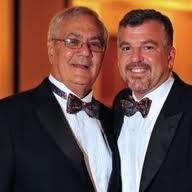“Punting the Pundits” is an Open Thread. It is a selection of editorials and opinions from around the news medium and the internet blogs. The intent is to provide a forum for your reactions and opinions, not just to the opinions presented, but to what ever you find important.
Thanks to ek hornbeck, click on the link and you can access all the past “Punting the Pundits”.
Follow us on Twitter @StarsHollowGzt
New York Times Editorial: The Need to Agree to Agree
Taxes are supposed to be complicated and contentious. Yet, speaking from the White House on Monday, it took President Obama less than 15 minutes to make a strong and sensible case for letting the high-end Bush-era tax cuts expire at the end of 2012. Citing well-documented facts, he pointed out that tax cuts at the top have failed to promote economic growth and have blown a hole in the federal budget. [..]
In calling for cooperation from Congress, Mr. Obama said that the point is to “agree to do what we agree on”: extend the middle-class tax cuts. As a matter of fairness and responsible policy making, he said, the majority of Americans, and the broader economy, should not be held hostage again to another debate over the merits of tax cuts for the wealthy. [..]
The strength of Mr. Obama’s argument is unlikely to sway Republicans. But he’s right on fairness and the facts, and will, we hope, prevail in this debate.
Dean Baker: The Dirt on Erskine Bowles: The Tame Half of Bowles-Simpson
In recent weeks Alan Simpson, the foul-mouthed former senator, has apparently been sent to the sidelines. It seems that his inability to restrain his contempt for those who are now or will in the future be dependent on Social Security and Medicare makes him an undesirable spokesperson for the drive to cut back these programs. This means that Erskine Bowles, who was the other co-chair of President Obama’s deficit commission, will play a more visible role in pushing the cause.
While Mr. Bowles is clearly better able to control his temper and his vocabulary than Senator Simpson, those are not sufficient credentials for dictating the future shape of the Social Security and Medicare systems. Despite the deference accorded Bowles in elite Washington circles, in the rest of the country his background might be seen as more a source of embarrassment than a badge of honor.
Spare us any more hooey about “preventing fraud” and “protecting the integrity of the ballot box.” The Republican-led crusade for voter ID laws is revealed as a cynical ploy to disenfranchise as many likely Democratic voters as possible, with poor people and minorities the main targets.
Recent developments in Pennsylvania-one of more than a dozen states where voting rights are under siege-should be enough to erase any lingering doubt: The GOP is trying to pull off an unconscionable crime.
Late last month, the majority leader of the Pennsylvania House of Representatives, Mike Turzai, was addressing a meeting of the Republican State Committee. He must have felt at ease among friends because he spoke a bit too frankly.
Ticking off a list of recent accomplishments by the GOP-controlled Legislature, he mentioned the new law forcing voters to show a photo ID at the polls. Said Turzai, with more than a hint of triumph: “Voter ID, which is going to allow Governor Romney to win the state of Pennsylvania-done.”
Katrina vanden Heuvel: Krugman’s Manifesto for Economic Common Sense
Paul Krugman sounds frustrated. “You tend to think,” he told last month’s Netroots Nation conference, “that people who are demanding that we solve this [depression] quickly must be crazy idealists who are defying the wisdom of economic knowledge. But it’s actually the other way around. It’s actually the people in charge, who are refusing to end this thing quickly, who are ignoring the lessons of history and rejecting economic knowledge.”
Krugman’s consternation is easy to understand. While mainstream reporters rank gaffes and mainstream politicians demagogue the deficit, hard realities loom, against which elite discourse seems almost innocent. A rolling world economic crisis could easily lead to a Second Great Depression. The ongoing decline of middle-class wealth and income is steadily transforming the United States. The euro project and the European social welfare state both face collapse. Disorder spreads in the Middle East. China’s high-savings economic model breeds twin political and economic crises that could shake geo-economics for decades. And the thirty-year build-up of private-public debt in the Western world will require extraordinary measures to keep it from bringing down the global economy.
Amanda Marcotte: Why Attacks on Contraception Meet Success in Such a Pro-Contraception Culture
Another month in the ramped-up war on women, and another unfortunately successful attack on women’s access to contraception. The story of the North Carolina legislature defunding Planned Parenthood is remarkable mainly for the doggedness of the anti-choice faction, from the fact that it had to be done with an override of the governor’s veto to the fact that it was done late at night before a holiday. Never let it be said that North Carolina conservatives don’t take keeping affordable birth control out of the hands of women very seriously.
Occasions like this tend to cause pro-choicers not just to be sad about the setback, but also to despair of every gaining any ground. We live in a society where 95 percent of Americans have sex without being married first, contraceptive use is functionally universal, mainstream media largely portrays sex as an ordinary life (which it is), and formerly marginalized sexual identities are becoming more socially acceptable by the minute. You would think in such an environment, the gap between how we actually live and the sexual lives conservatives demand of us — sexual lives that are practiced by a vanishingly small minority, so small that very few of the conservatives pushing this image actually live it –would be enough to overcome their efforts at slashing reproductive health care access. Attempts to force people to embrace abstinence or face very serious consequences should, logically, be seen as just as ridiculous as attempts to force people to abstain from going outside when the weather is nice or going to the movies.
Dave Zirin: Serena Williams and Getting ‘Emotional’ for Title IX
After Serena Williams won her fifth Wimbledon title in stunning fashion on Saturday, she was asked a familiar question on the tournament’s storied Centre Court. It’s a question that seems to be posited to every female athlete at every level of competition: “Was it difficult for you to control your emotions?”
It’s true that men are sometimes asked the “emotions” question but this is a question women athletes are always asked. It speaks to a broader sentiment that both predates and transcends the playing field: the idea that women are just too emotional, too hysterical, too mercurial, to be taken seriously in any walk of life. This runs so deeply in the marrow of US society, we rarely – unless male politicians are lobbying for involuntary vaginal ultrasounds – step back and comment on just how destructive it is.


 A report in the New York Times by Mark Mazzetti, a national-security correspondent, revealed that the
A report in the New York Times by Mark Mazzetti, a national-security correspondent, revealed that the 
Recent Comments